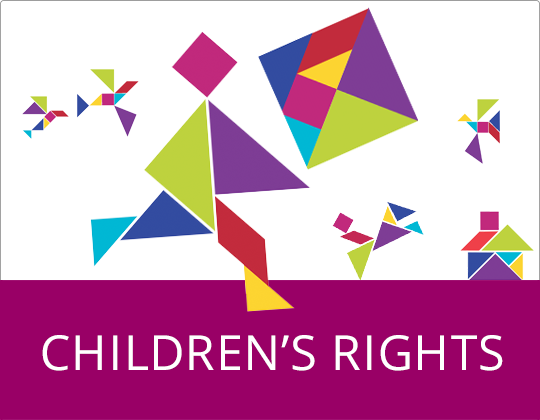Alternative care
Children in alternative care

Children can be placed with relatives, in foster care or other family-like settings, or in residential institutions. Evidence demonstrates that family and community based forms of care are more likely to meet the needs of children than residential care in institutions. The Council of Europe therefore advocates for de-institutionalisation, which is beneficial to children, families, communities and governments.
Council of Europe legal standards
The Council of Europe Recommendation CM/Rec (2011)12 on children’s rights and social services friendly to children and families addresses children’s rights in social services planning, delivery and evaluation. Its aim is “to ensure that social services are delivered upon individual assessment of the child’s needs and circumstances and take into account the child’s own views, considering his or her age, level of maturity and capacity.” The Recommendation defines “child-friendly social services” as “social services that respect, protect and fulfil the rights of every child, including the right to provision, participation and protection and the principles of the best interest of the child.”
Recommendation: English - French - Arabic - Armenian - Azerbaijani - German - Italian - Romanian - Serbian - Spanish - Turkish - Ukrainian
The Council of Europe Recommendation Rec(2005)5 on the rights of children living in residential institutions establishes overall guiding principles to be applied whenever a child is placed outside the family, particularly in a residential institution. It underlines that every placement must ensure that the child's human rights are fully respected. According to this Recommendation, placements are justified only when the child is in such danger that it is impossible for him or her to remain in the family environment. The Recommendation sets quality standards for institutions, for example that small family-style living units should be provided.
Recommendation: English - French - Czech - Estonian - Greek - Icelandic - Latvian - Lithuanian - Polish - Russian - Serbian
Explanatory report: English - French - Greek - Polish - Russian
Leaflet: English - French - Bulgarian - Czech - Lithuanian - Romanian - Russian - Turkish - Ukrainian
The Council of Europe Recommendation CM/Rec(2010)2 on deinstitutionalisation and community living of children with disabilities calls on member States to take appropriate legislative, administrative and other measures to replace institutional care with community-based services within a reasonable timeframe and through a comprehensive approach. It states that all children with disabilities should live with their own family unless in exceptional circumstances and calls for phasing out new institutional placements and replacing them with a comprehensive network of community provision.
Council of Europe resources
Children and young people in care – Discover your rights! is a booklet addressed to children and young people in alternative care. Through comics, stories and informative texts, children and young people in care can learn about their rights and how to take on an active role in their own care process. The publication was prepared in co-operation with SOS Children’s Villages International.
Booklet: English - French - Albanian - Azeri - Bosnian - Bulgarian - Croatian - Czech - Estonian - Greek - Italian - Latvian - Polish - Romanian - Russian- Ukrainian
Leaflet: English - French - Armenian - Bosnian - Croatian - Czech - Russian - Ukrainian
Poster: English - French - Armenian - Greek - Russian - Ukrainian
Securing Children’s rights – A guide for professionals working in alternative care complements the booklet “Discover your rights” and provides guidance and tools for professionals that work with children in care, promoting a child rights-based approach. This guide is the outcome of a set of consultations with young people in care, professionals working with children in care, UNICEF, governments, academics and ombudspersons for children.
Booklet: English - French - Albanian - Croatian - Estonian - Romanian.
Other resources
United Nations Guidelines for the Alternative Care of Children
Moving forward: Implementing the “Guidelines for the Alternative Care of Children”



